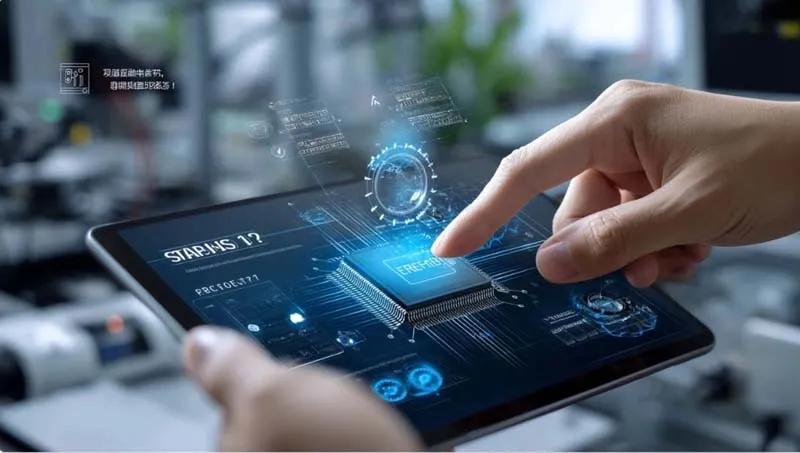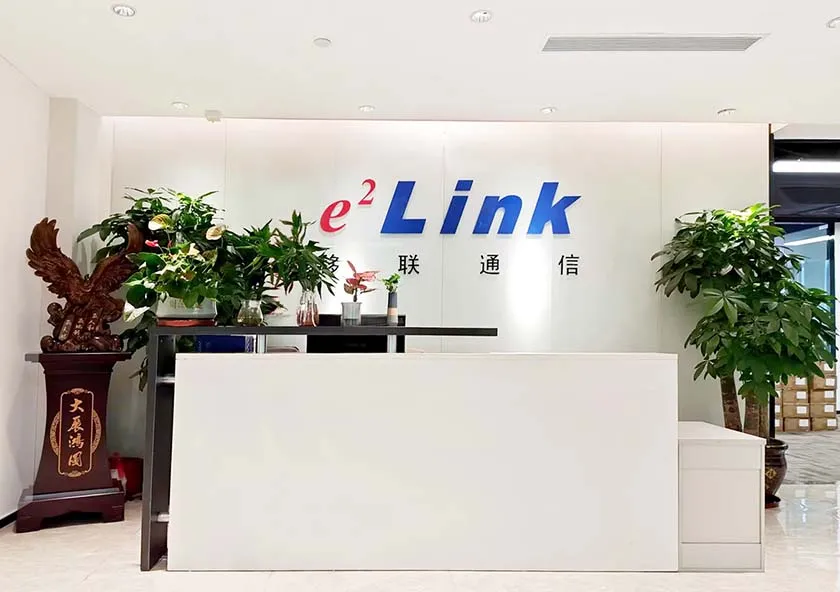With the rise of the global digitalization wave, the industrial sector is undergoing an unprecedented transformation. This transformation is not only a technological change but also a comprehensive upgrade in productivity and management models.
In this process, Internet of Things (IoT) technology has become a key driving force behind the Industrial 4.0 revolution, reshaping the production efficiency, cost structure, and business models in industries such as manufacturing, energy, and logistics. IoT is not only changing the way traditional industries operate but also giving birth to a new intelligent manufacturing system, driving the rapid development of the entire industrial sector.

Overview of IoT Technology
The core of IoT technology lies in the interconnection of devices, systems, and people, utilizing sensors, data analysis, cloud computing, and other tools to enable intelligent, automated collaboration and decision-making. The wide application of IoT allows each machine, production line, and even each service to be optimized, managed, and predicted through data streams, greatly improving production efficiency and corporate responsiveness.
In the context of Industrial 4.0, IoT technology is not only limited to digital control on production lines but also deeply integrates manufacturing processes, enabling real-time monitoring and adjustment of various production stages. Real-time data collection and processing allow factories to closely monitor production conditions, predict and prevent potential failures, and avoid shutdowns or defects, ensuring the efficient operation of the production process.
The Demand and Challenges of Industrial 4.0 Transformation
The core concept of Industrial 4.0 is to create more flexible, intelligent, and self-adaptive production systems by combining intelligent manufacturing, digital transformation, and automation technology. Unlike previous industrial revolutions, Industrial 4.0 emphasizes the deep integration of information technology with production equipment, focusing on intelligent, interconnected, and highly automated systems.
However, during the transformation to Industrial 4.0, manufacturing companies face numerous challenges. Problems such as efficiency bottlenecks, high costs, human error, and complex supply chain management continue to plague enterprises. In this context, IoT technology becomes the key to solving these problems.
By intelligently monitoring and managing equipment and production lines, IoT can not only greatly enhance production efficiency but also help companies reduce costs, optimize resource allocation, and ultimately achieve the digital and intelligent transformation of the entire production system.

Application Cases of IoT in Industrial 4.0
The application of IoT technology in Industrial 4.0 has already yielded significant results. Below are several typical application cases:
1.Improved Production Efficiency
IoT technology can monitor equipment status in real time, predict equipment failures, and perform preventive maintenance. This data-driven management approach allows production lines to avoid downtime as much as possible and maintain high operational efficiency. For example, by using IoT devices to monitor parameters such as temperature, pressure, and other critical indicators in real time, potential equipment failures can be detected early, allowing for timely repairs and preventing unnecessary shutdowns.
2.Cost Optimization
Through precise data collection and analysis, IoT enables companies to better understand resource consumption during production processes, thereby optimizing energy efficiency and reducing waste of raw materials. In addition, IoT helps companies achieve intelligent inventory management, reducing unnecessary inventory accumulation and lowering inventory management costs.
3.Business Model Innovation
IoT is not just a tool for improving production efficiency and reducing costs; it also opens up new business models for companies. For example, through remote monitoring technology, companies can offer equipment health management services to customers, rather than just selling products. This value-added service model based on data analytics is one of the business innovations brought about by IoT.

Key Innovations in IoT Technology
The innovations in IoT technology are not only reflected in the intelligence of hardware devices but also in the data processing and computing capabilities behind them. Below are the key innovations of IoT technology in the transformation of Industrial 4.0:
1.Smart Devices and Sensors
High-precision smart devices and sensors enable real-time collection of data during production processes, such as equipment temperature, humidity, pressure, vibration, and other critical parameters. By intelligently analyzing this data, companies can better manage production conditions, implement precise quality control, and perform maintenance.
2.Cloud Computing and Big Data Analytics
One key innovation in IoT technology is the use of cloud computing platforms, which serve as powerful data processing centers. Cloud platforms can store and analyze large amounts of data from various production stages, helping companies make smarter decisions. At the same time, with the help of big data analytics, companies can better forecast market demand, optimize production planning, and supply chain management.
3.5G and Edge Computing
With the rollout of 5G technology, the connectivity speed and data transmission capabilities of IoT have been greatly enhanced. The low latency and high bandwidth features of 5G make real-time monitoring and instant response possible. Coupled with edge computing, IoT devices can process data locally, reducing data transmission delays and bandwidth burdens, thus improving the overall system’s response speed.
4.Artificial Intelligence and Machine Learning
The combination of IoT and artificial intelligence (AI) allows devices to not only collect data but also to autonomously learn and make decisions. Through machine learning algorithms, devices can analyze historical data, predict the probability of equipment failure, perform preventive maintenance in advance, and ensure smooth production processes.

Future Trends and Development
In the future, IoT technology will play an increasingly important role in the Industrial 4.0 transformation. As technology continues to develop, IoT will become more intelligent and integrated, and future production systems will focus more on automation and autonomous decision-making. Beyond manufacturing, IoT has broad application prospects in fields like energy, logistics, and agriculture.
Enterprises will not only rely on IoT technology to optimize production processes but also use IoT to gather more customer data, enabling personalized services and precise marketing. Furthermore, the global spread of IoT technology will promote inter-regional industrial collaboration and supply chain optimization, significantly enhancing global production efficiency.
In conclusion, IoT technology is undoubtedly the core driving force behind the Industrial 4.0 transformation. Through the integration of smart devices, real-time data analysis, and cloud computing platforms, IoT has significantly improved production efficiency while playing an important role in cost optimization and business model innovation.
In the future, as technology continues to advance, IoT will drive more intelligent, flexible, and efficient production modes, helping enterprises stand out in the global competition.
In this field, EELINK Communication, as a leading company in IoT, leverages its more than 20 years of technological expertise and innovation in the development and manufacturing of IoT hardware and software devices.

Its broad product range, including remote monitoring platforms for temperature, humidity, and more, is widely used in asset management, vehicle anti-theft, and cold chain transportation management. EELINK Communication is committed to achieving a connected world through innovative smart technologies, helping enterprises provide efficient and reliable solutions to meet ever-changing customer needs.
